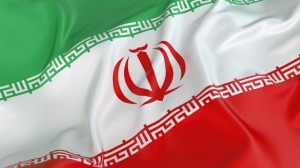 TEHRAN — Relief for Iran’s ailing economy will be the top priority of Iranians on June 14, when they vote to replace Mahmoud Ahmadinejad as president. Foreign policy, however, will take on extra significance in the election, as Iran struggles to undo the economic and diplomatic isolation of the past four years.
TEHRAN — Relief for Iran’s ailing economy will be the top priority of Iranians on June 14, when they vote to replace Mahmoud Ahmadinejad as president. Foreign policy, however, will take on extra significance in the election, as Iran struggles to undo the economic and diplomatic isolation of the past four years.
Facing staggering unemployment and a high inflation rate, few of the candidates have offered more than a vague recipe for how they intend to revive the slumping economy. But nearly all have touted their abilities to right Iran’s course and help mend its problems with the international community.
They do not, however, agree on how to do it.
While many of the most well-known candidates are not well-versed in economic policy, most boast extensive foreign policy experience. In this election, the two are inextricably linked, because many of Iran’s economic issues are a result of the international sanctions that severely limit the country’s ability to export and receive payment for its oil.
“The more-educated, urban population draws connections between foreign policy and the economic conditions,” said Bijan Khajehpour, managing partner of Atieh International, a consulting firm based in Vienna. “Topics such as sanctions and Iran-U.S. relations will be taken up by the candidates.”
Among the most discussed candidates are a former president, two former foreign ministers, the current and a former lead nuclear negotiator and the current head of the Non-Aligned Movement, which Iran chairs until 2015.
It remains unclear who among the nearly 700 registered contenders will win approval from the Guardian Council, the body tasked with vetting presidential hopefuls. The council is scheduled to finalize its list of approved candidates Tuesday; campaigning is set to start Thursday.
Candidates who support Iran’s independence and defend its international rights have always done well with voters, but a less confrontational approach to foreign policy might prove more appealing to the Islamic republic’s electorate, as the country tries to relieve some of the pressure created by sanctions.
That, say some analysts, will hurt the chances of Iran’s lead nuclear negotiator, Saeed Jalili, whose inflexible negotiating style is considered a main reason that international talks over Iran’s nuclear program have not yielded better results. His insistence on “resistance” as the focus of Iran’s nuclear strategy is seen as the continuation of a status quo that many Iranians believe ignores the struggles of the country.
“Jalili at the top of the ticket is not the most prudent course of action for the conservative establishment,” said Mehrzad Boroujerdi, director of Middle East studies at Syracuse University.
One of Jalili’s predecessors in the nuclear post, Hassan Rouhani, represents a more moderate approach to foreign policy, which appeals to many Iranians.
Last week, Rouhani told Tehran University students: “Some think they must fight with the rest of the world, while others think we have to surrender. But there is a third choice, which is to have constructive interaction. We have to go on with the world based on our national interests.”
Among moderate conservatives is Ali Akbar Velayati, a Johns Hopkins University-trained pediatrician who served as Iran’s foreign minister from 1981 to 1997 and is a longtime adviser to the country’s supreme leader, Ayatollah Ali Khamenei.
For the past year, there have been numerous reports that Velayati is engaging in secret negotiations with the United States, a claim he has repeatedly denied.
At a May 11 news conference to announce his candidacy, Velayati said, “We have the ability to both maintain our right to nuclear energy and improve relations with the rest of the world.” But he did not respond directly to questions about how relations with the United States might differ if he is elected.
Esfandiar Rahim Mashaei, Ahmadinejad’s top aide, has been active in a range of postsintegral to Iran’s foreign policy. Currently the head of the Non-Aligned Movement, an international body of more than 100 countries, he previously ran Iran’s Ministry of Tourism and Cultural Heritage, which he used to promote his diplomatic initiatives with longtime foes Jordan and Egypt.
Mashaei famously said that he sees no enmity between Iran and either Israel or the United States, and he has advocated attracting investment from Iran’s wealthy diaspora, an overture hard-liners have shunned.
For many observers, former president Ali Akbar Hashemi Rafsanjani is the candidate most capable of simultaneously addressing the economic and foreign policy challenges facing Iran.
“Rafsanjani knows how these two are intertwined. He will try to convince the leader that the long-term survival of the regime is dependent on lifting or lessening the impact of the sanctions,” Syracuse’s Boroujerdi said.
His candidacy, however, is under intense attack by conservatives, who believe Rafsanjani’s diplomatic pragmatism would undermine the ideological tenets of the Islamic republic.
By The Washington Post
The Iran Project is not responsible for the content of quoted articles.

 QR code
QR code